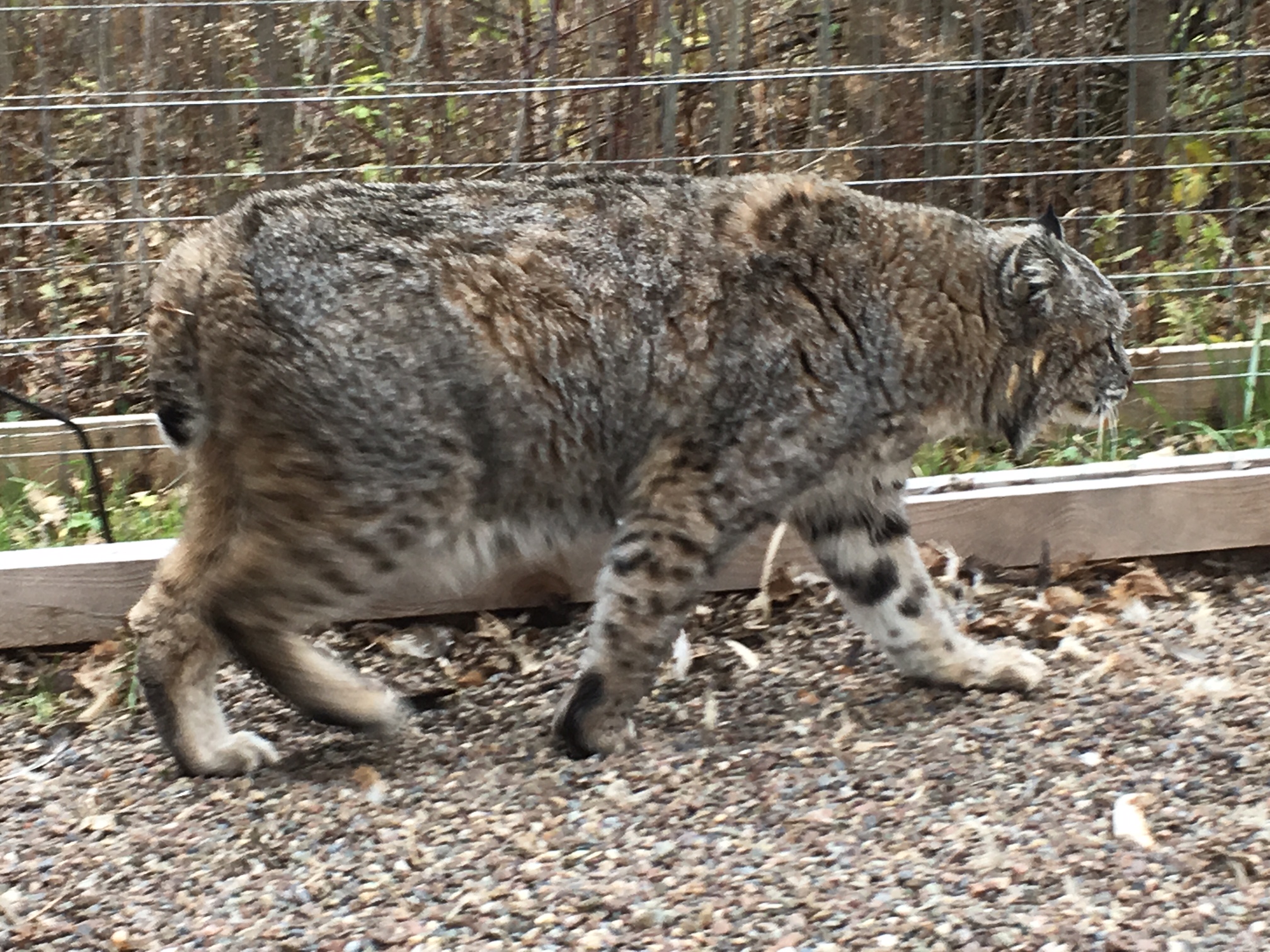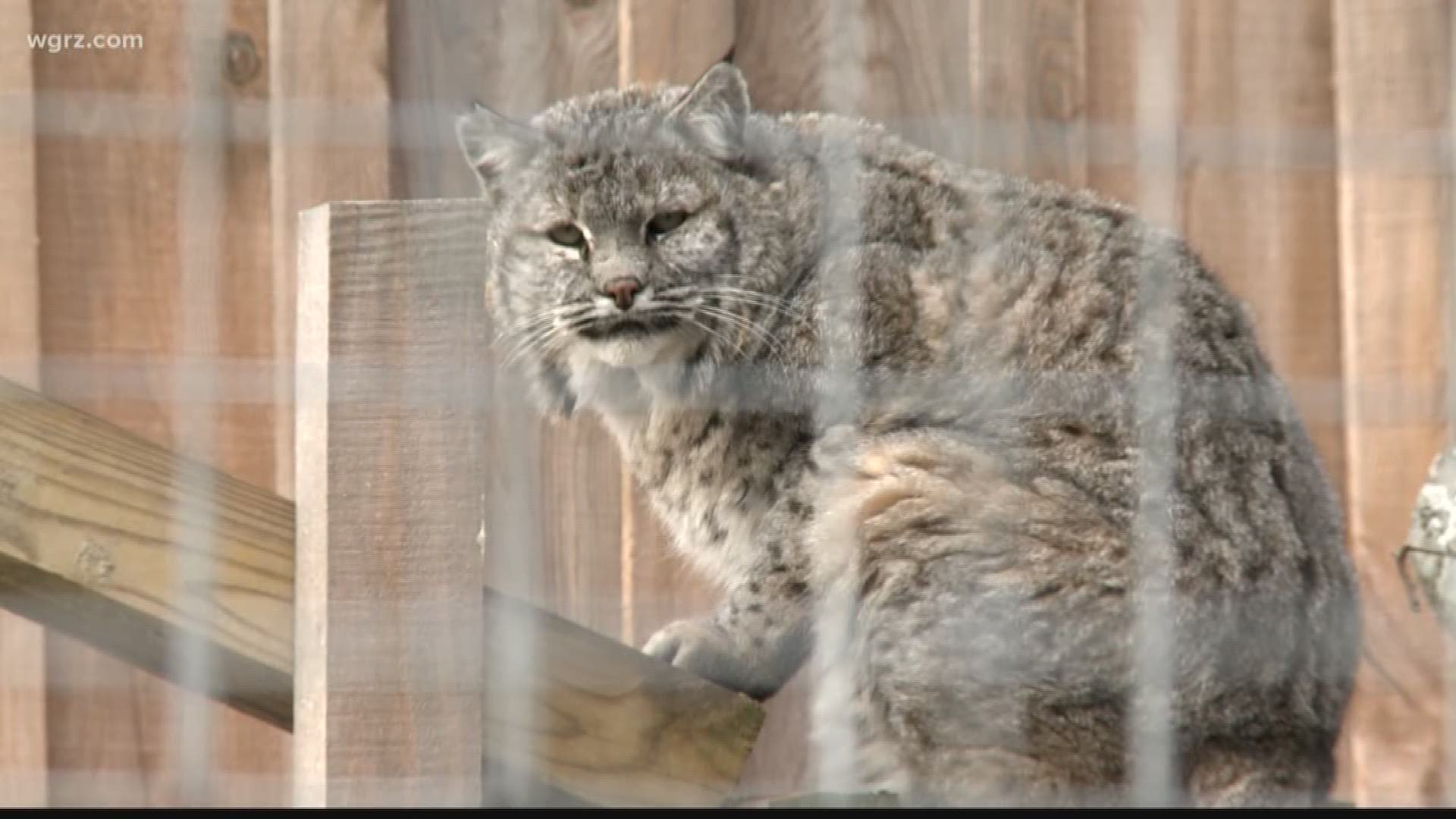AKRON, NY — Western New York is full of elusive creatures, animals that are abundant but rarely seen. The Bobcat may be the most secretive of them all.
Wildlife Rehabilitator Bob Humbert explains.
"They're nocturnal, and they're very elusive. When you do see them, you only see them for a matter of a few seconds," Humbert said.
Even though they are rarely spotted in the wild, the Bobcat has gotten a bad rap as being an aggressive, dangerous creature, a stereotype that Humbert says is totally unfounded.
"They want to stay away from you, they don't want to come up to you, the same with the Coyotes, they're not going to come kill your kids or eat your dogs. They do take cats, but people have to learn to protect their animals," Humbert said.

The Bobcats' habitat in Western New York is slowly being diminished by human development. Despite this, the beautiful cats provide an important function for the environment.
"They eat a lot of rodents, all this stuff, the coyote, the fox, the bobcat. Which, you know, is better than any poison we can put out, because secondary poisoning can kill more things than you're trying to kill, and I see that a lot, too," Humbert said.
This Bobcat, now known as "Mr. Jinks" was rescued from an owner in another state. Although he was owned legally, his conditions were deplorable. Humbert describes the former home.
"His living quarters was, I would say, eight by ten, six foot tall, and to get out of the weather he had a two foot by three-foot box. He was very aggressive, had a bad temperament, he was food aggressive, he was people aggressive," Humbert said.
That aggression actually manifested itself in true loathing for his former owner.
"When the guy fed him, he took the chicken from the guys' hand with hate. He growled, he snarled, and as soon as he took it, he ran and hid with it."
And now?
"Within a day and a half, I went into his cage, not thinking this was going to happen, but when I walked in, he saw that I had chicken in my hand and he walked up and grabbed it just as gentle as my dog would," Humbert said.
All of which suggests a capacity for understanding and perhaps even forgiveness, qualities usually reserved for the human animal.
"Animals are smart enough to know when their situation gets better, and I think they appreciate it. He's not in a perfect situation, because a perfect situation, he'd be out in the wild, but unfortunately, he's not able to do that, he's captive bred," Humbert said.
Humbert says that the future for Mr. Jinks is to be an animal ambassador, teaching visitors to the compound about his wild brethren, and hopefully helping preserve their populations in Western New York and beyond.
"When they get a chance to see the animal up close, and how it acts and how beautiful they really are, it does change their thinking," Humbert said.

